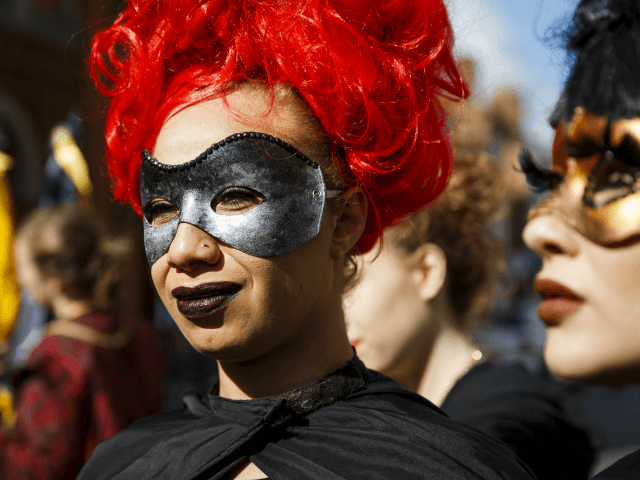Ireland’s feminist culture minister is pushing a policy to ensure that half of all plays staged in Ireland are written by women within five years as part of a broader “gender equality” campaign.
Minister Josepha Madigan launched the aggressive quota drive on Monday at the Lir National Academy of Dramatic Arts at Trinity College to make sure that women are equally represented on theatre boards. She seeks an immediate commitment from theatres and arts festivals to guarantee that half of all plays commissioned will have female playwrights within five years.
Ten theatres and arts festivals have already signed onto the policy, including the Dublin Theatre Festival and the Gate, Abbey, and Druid theatres. The “Gender Equality in Practice in Irish Theatre” quotas were drafted after the #WakingtheFeminists campaign in 2015-2016, which protested the low proportion of female playwrights and directors in Irish theatre.
Other measures and goals included in the new policy include gender-blind readings for plays, unconscious bias training for all staff, numerical gender equality on boards, and a re-examination of the “female canon.”
“These policies are important in the light of what has happened in Irish theatre over the last number of years,” Madigan said. “Obviously, it doesn’t just happen in the theatre or the arts sector — it happens across the board in all parts of society.
“It is vital that women’s voices are allowed to reverberate on stage, across the cultural sector and across society as a whole,” she said.
Madigan called the theatre organizations “pioneers” in gender equality and expressed her hope that 50 percent female representation will become “standard practice” in every sector of society.
#WakingtheFeminists was launched after the announcement of the Waking the Nation program at the Abbey Theatre in 2016, which commemorated the centenary of the Easter Rising. It responded directly to the observation that only one of the 10 plays presented had been written by a woman and that there were only three female directors.
The Irish gender equality movement in theatre took inspiration from the #MeToo movement in the United States, following allegations of sexual assault against film producer Harvey Weinstein.
For the moment, the policies are voluntary and rely on the willing compliance of theatres, but Ms. Madigan has suggested that in the future they may become enforceable regulations if groups fail to get in line.
“There may be a case for putting these guidelines on a statutory basis,” she said, noting that gender quotas had been employed in Dáil (Irish assembly lower house) elections, which “helped bring more women into politics.”
“That is something we may look at if the guidelines don’t work,” she said.
Follow Thomas D. Williams on Twitter Follow @tdwilliamsrome

COMMENTS
Please let us know if you're having issues with commenting.